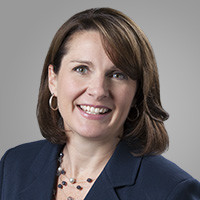Originally posted September 19th, 2017
As the fastest-growing regional airline in the country, PSA Airlines has doubled in size in just a few short years and now has 3,000 employees and operates nearly 700 daily flights to about 90 destinations. Headquartered in Dayton, Ohio, PSA has flight crew bases located there as well as Cincinnati, Ohio, Knoxville, Tennessee, Washington, D.C., and Charlotte, North Carolina. PSA also has maintenance facilities in Dayton and Canton, Ohio and Cincinnati/Northern Kentucky Airport, Charlotte, North Carolina, and Greenville, South Carolina. With plans to expand its fleet to 150 aircraft, and facing talent shortages that are especially acute among commercial pilots, Margaret Soda, PSA’s Vice President – Human Resources, recently spoke to us about the talent acquisition challenges that her industry faces and how the end-to-end re-engineering project completed by TalentRISE [link to the case study here] has helped PSA chart a course through the talent turbulence in the aviation industry.
Question: Tell us a bit about your career path and how you landed – pun intended – in your current role?
Soda: I’ve always worked in Human Resources. From 2007 to 2014, I spent seven years in the airline industry and then went to work in a manufacturing facility for two years. That plant closed and I was contacted by a recruiter about re-joining the airline industry. PSA offered a new and interesting opportunity, so I thought – why not go back into the business, particularly since it was a promotional opportunity for me on my career path and PSA was looking for someone with experience in the industry. They really needed to get HR programs and initiatives off the ground, as our current period of growth in HR was just starting. When our president joined the company in 2014, we had 49 aircraft and now we are headed toward a fleet of 150. When I joined, our HR team was 20 people and now we have doubled to 40 team members as we’ve expanded from a total of 800 to 3,000 employees.
Question: How have you managed this much growth in a short period of time?
Soda: Within HR, there was turnover before I joined since our industry is quite different and complex; it is very fast paced and many HR models from other industries aren’t the right fit. The team was doing everything they could, but initiatives weren’t necessarily following best practices or driving for sustained success in the regional airline industry.
When I began, I started by building the HR team with more guidance and intention, rather than only focusing on the day-to-day operations. We had a lot of team members that were new to the company and in new positions which led to building a team that is excited about the company and signed up for this opportunity because they are passionate about our business. My job is to point them in the right direction and watch them succeed.
TalentRISE set the stage for that on the recruitment side. The assessment that they provided made perfect sense for our HR model. And for me, coming in as a brand new leader, it was great that this deep-dive into the existing recruitment process had already been done. With a pathway built out and also with buy-in from senior management, I was able to hire two direct reports to start on execution with an understanding and clear vision about our current state, where we wanted to go, with quick wins and process mapping. The work TalentRISE did really helped us to hit the ground running.
Question: What is the state of talent acquisition like in your industry these days? What are the challenges?
Soda: The talent pipeline has its shortcomings. It is hard to source qualified applicants for many positions, particularly because of the certifications and qualifications required to become a commercial airline pilot. Everyone is hiring and the pool is simply not big enough for everyone.
Question: How is PSA dealing with those challenges?
Soda: Part of our new recruitment structure is that we have dedicated resources focused on building our pipeline. For instance, we’re partnering with aviation schools and we’ve seen a lot of success through that initiative. Our Pilot Cadet program, for example, involves mentorship for those students. As part of capitalizing on students, our pilots mentor them throughout their education. We also stay competitive on wages and are constantly evaluating the competitive landscape. As far as mechanics, we are working to follow that same path, although we look for people with years of deep experience to support our maintenance operation. With flight attendants, the pool is bigger but, for this customer-facing role, we are very selective to ensure we are meeting our customer service goals, so we put in a lot of effort into finding the right people.
Question: What results have you seen so far from the TR project?
Soda: We now have a fully-staffed recruitment department where the foundational work has been done so that we can be sure we’re using the very best practices and processes. We’ve also implemented TalentRISE’s recommendation to use a CRM and figured out the best way to manage workflow. All-in-all, this has made us more strategically focused.
Question: What advice would you give to others in your shoes and experiencing such tremendous growth these days?
Soda: Don’t be afraid to get help from experts. There is a tendency to say, “I can do all of this internally.” But you can’t expect your employees to develop and deliver all programs. Be open to working with partners and be willing to outsource various components, whether on a temporary or project basis. In addition, HR cannot afford to be behind the growth curve. For PSA, when we are growing this fast, it’s hard to keep up. It is important to recognize your needs and go outside of your business to find help.

